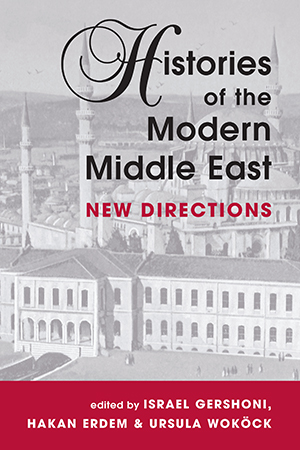Reflecting cutting-edge scholarship and covering more than two centuries of change, this seminal collection represents key trends in the historiography of the modern Middle East.
The authors each combine a methodological theme with concrete, original research, relating theoretical issues to the actual writing of history. Their topics range from the Israeli-Palestinian conflict to globalization, from well-established historical figures to new actors, from the elite to broader strata of society.
Applying new kinds of methodology—showing new ways of "doing history"—the book serves as a singular guide to current developments in the field.
Israel Gershoni is professor of Middle Eastern history at Tel Aviv University. His publications include Egypt, Islam and the Arabs: The Search for Egyptian Nationhood, 1900-1930 and Redefining the Egyptian Nation, 1930-1945 (both coauthored with James Jankowski) and The Nile: Histories, Cultures, Myths (coedited with Haggai Erlich). Hakan Erdem is professor of history at Bogazici University in Istanbul. He is author of Slavery and Its Demise in the Ottoman Empire. Ursula Wokoeck teaches in the Department of Middle Eastern and African History at Tel Aviv University.
"A fascinating collection of essays ... with an obvious appeal for a broad range of historians of the Middle East.... There is little doubt that this contribution does ‘open new doors and offer fresh insights to our understanding of the history of the modern Middle East'." —Ali M. Ansari, Mediterranean Politics
"Fascinating and unique studies.... This collection adds new, significant, and refreshing dimensions to the historiography of the Middle East." —Choice






